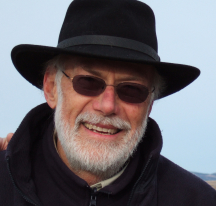 BRIAN
W. UNGER
BRIAN
W. UNGER
 BRIAN
W. UNGER
BRIAN
W. UNGER
Education
B.Sc. (1963) Electronics Engineering, Loyola University, Los Angeles
M.Sc. (1965) Communications Engineering, University of Southern California
Ph.D. (1972) Information & Computer Science, University of California, San Diego
Present Positions
President & CEO, River Run Collaboratory Ltd
Professor Emeritus, Department of Computer Science
Board Member, Plannet Inc. and iREACH
Key Words: Research and innovation funding, simulation, Internet modeling, parallel and distributed simulation.
Brian Unger is President and CEO of the River Run Collaboratory and Professor Emeritus, Computer Science, at the University of Calgary, Alberta. He currently is also a member of several Boards including Plannet Inc. and a Cambodian NGO, KITD (Khmer ICT Development). He was the founding President and CEO of iCORE, the "informatics Circle of Research Excellence", from 1999 though 2005 (now iCORE is incorporated within Alberta Innovates Technology Futures). iCORE was a not-for-profit corporation that funded research in the information and communication sciences at Alberta universities. Under his leadership, iCORE funded 17 Chairs and Professors whose research teams in 2005 included over 500 faculty, post doctoral fellows, research staff and graduate students working in targeted areas within the communication networks, nano-informatics, and intelligent software systems areas.
Dr. Unger was the founding president of Netera Alliance, now Cybera Inc., a research consortium aimed at advanced computing and networking, and was the founding Board Chair of C3.ca, now Compute Canada, a consortium of over 30 universities, corporations and government agencies that is aimed at building Canada's infrastructure in high performance computation. He was the founder of Jade Simulations International, a private for-profit corporation, and served as its President and CEO for five years, from 1988 until returning to the university in 1993.
Dr. Unger was named a Canada Pioneer of Computing at the IBM CASCON conference, Toronto, October, 2005, and received the IWAY Public Leadership award for outstanding contributions to Canada’s information society in 2004, and the 1993 ASTech award for “Innovation in Alberta Technology” for research in parallel simulation and distributed computation.